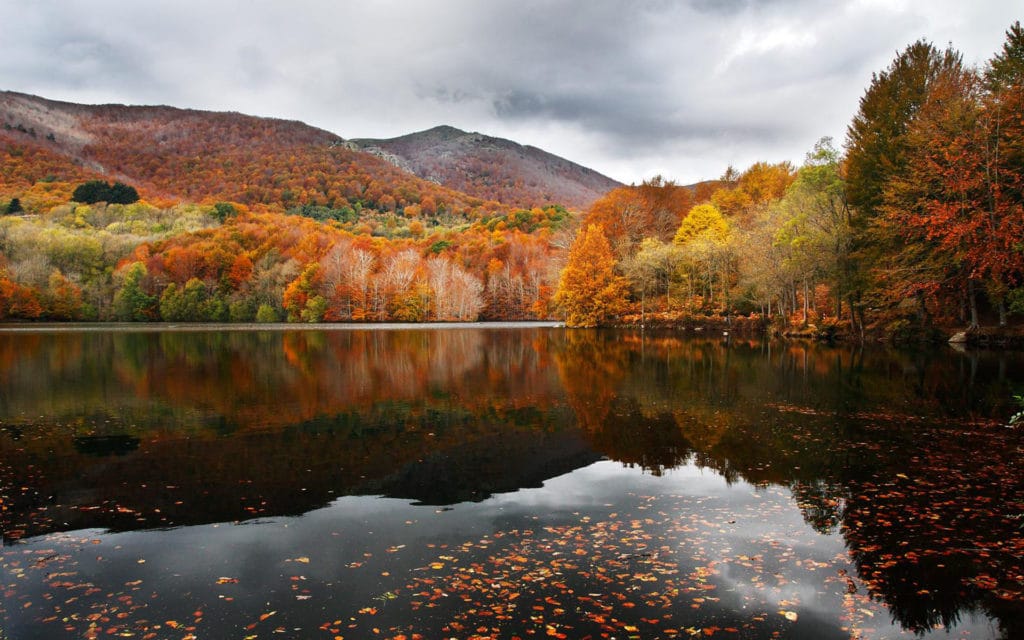Join us as we journey around Catalonia exploring six projects with social impact – from the city of Barcelona to the forests and wine country in Bages. We visit an old mill that uses new tech to create superfoods, wine castles in the forest, an aspiring energy self-sufficient village and the STEM ‘TecnoGirls’.
Videos produced with Diputació de Barcelona. ? Click CC for subtitles in English, Catalan & Spanish.
1. Old Mill creates superfood with tech
Decades ago, a man bought an old stone mill to feed his family with traditional cereals. One day, his daughter had an idea to bring in new technology and turn the mill into a thriving business. We travel to L’Escairador to meet Josep Costa and Maria and learn more about blat, the superfood white corn that owes its tradition and conservation to Berguedà – a region in Catalonia where it’s still customary to use it in recipes, particularly at Christmas.
? L’Escairador, Berguedà, Catalonia
2. Village uses forest biomass to become self sufficient
The use of forest biomass to generate heat energy is huge in Europe: trunk, bark, branches, needles leaves and roots can be converted into biofuels which are clean and economical. In the fight against climate change, Llinars del Vallès – a picturesque village in between two National Parks in Catalonia – wants to become self-sufficient, using only renewable energy. And this is how they are going to do it.
?Llinars del Vallès, Catalonia
3. Green tourism & red wine in Catalan castles
Some say the word ‘Bages’ comes from Bacchus, the Roman god of wine. This probably isn’t true, but wine has been made in Sant Mateu de Bages since Roman times.We head to the heart of Catalonia – the forests of Bages – where massive cylindrical dry stone tubs were found after being buried for centuries. Amazingly, they weren’t built to protect people, but to protect wine, so it can be fermented next to the vineyard itself. This is why Bages Terra de Vins and Cal Carter Restaurant have achieved a Biosphere certification for sustainable, responsible tourism.
?Bages, Catalonia
4. School cooperatives: learning by doing
We head to market day in Badalona to meet students who are preparing to sell products that they have made in cooperatives they have created. It is a very important day, but there has been a lot of previous work. CuEmE (Entrepreneurial Culture in the School) is a programme in Barcelona that links schools and local authorities so students can create and manage a cooperative.
?Badalona, Catalonia
5. Empowering diverse abilities in Barcelona
Juan Gimenez is a technician at Diputació de Barcelona (DiBa). Every day, he has to analyse websites to search for errors – methodical work that is perfectly suited to people with his Asperger Syndrome. Juan was hired within the DiBa’s Capacitats Diverses programme, because the Diputació wants to go beyond the expected quotas in hiring people with diverse abilities. It’s a win-win approach for both the government body and Juan.
? Barcelona, Catalonia
6. Libraries use STEM to create ‘TecnoGirls’
Today, the number of girls who opt for technical or scientific studies is much lower than boys. TecnoGirl wants to combat this inequality. Part of ‘BiblioLab’ by Xarxa de Biblioteques Municipals (Municipal Library Network), the programme develops and supports getting creative and experimental in collaborative, open environments. Their exhibitions, workshops and events aim to get students more involved in STEM – especially girls between the ages of 12 and 18.
?Mataró, Catalonia
AtlasAction ► Learn about more projects coming out of Catalonia on Atlas of the Future.

